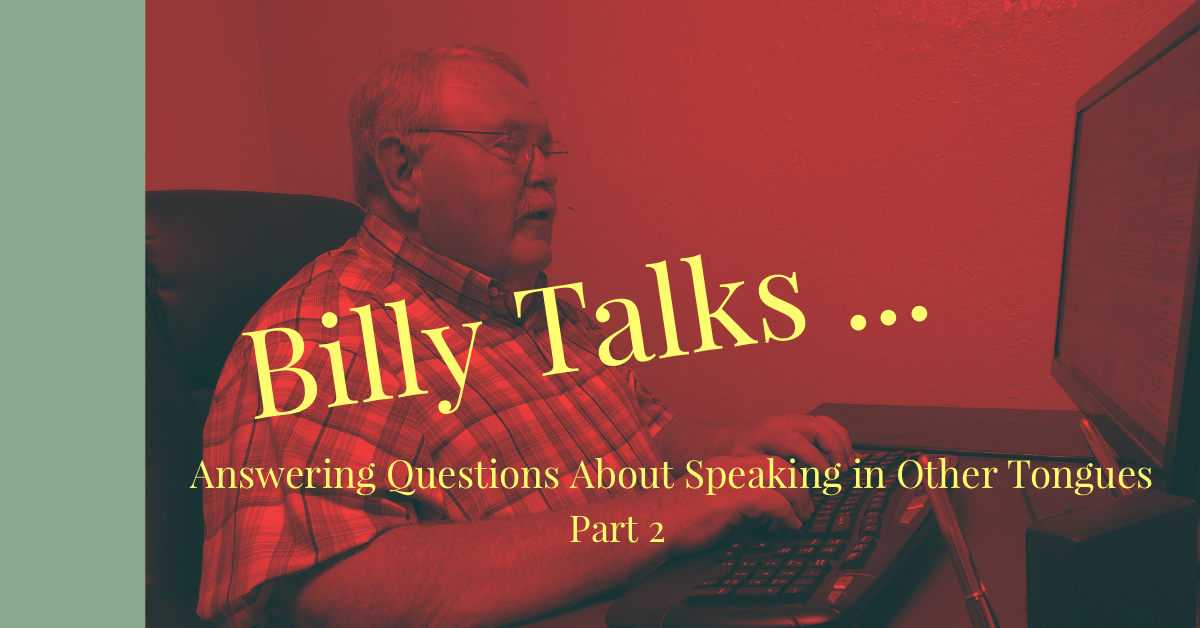
As a student of the Word, you know that the apostle Paul wrote letters to a troubled Corinthian church to bring clarity and understanding to areas where certain teachings had brought much confusion and harm to the Body of Christ. One of those areas of confusion concerned speaking/praying in other tongues. In bringing clarity to this issue, it is important to note that Paul wrote “I would that ye all spake with tongues …” (1 Corinthians 14:5). Then, just a few sentences further down, Paul wrote “I thank my God, I speak with tongues more than ye all.” (1 Corinthians 14:18).
While almost 2,000 years have passed since Paul wrote the Corinthian believers, there is still great confusion in today’s church about speaking/praying in other tongues. Just as in Paul’s day, this lack of understanding has needlessly caused God’s gift for all believers (Acts 2:4, 16-19, 39) to be a source of uncertainty and division in the church. In pulpits across our land today, well-meaning pastors and teachers continue to misinform believers and rob them of the benefits that come with praying in the Spirit.
To bring clarity and answer questions/objections about this New Testament truth, I began a series of blog posts last week pulling from the Three Reasons Why I Pray in Other Tongues teaching that I share in our Holy Spirit Rallies. Last week, I started with the question “Isn’t Speaking in Other Tongues of the Devil?”. This week, let’s look at another common question.
Question #2 – Didn’t Speaking in Tongues End With the Apostles?
1. Those with this question often point out that in Acts 8 the apostles Peter and John were sent to Samaria so that the believers could be baptized in the Holy Spirit and in Acts 19 the apostle Paul laid hands upon the Ephesian believers so that they might be baptized in the Holy Spirit. Then, they point out the obvious, those apostles are dead. This is followed with the comment stating that since the apostles are long gone, there is no one today to bestow this gift. To address this question, let’s look a little further into the scriptures. On the Day of Pentecost (Acts 2), who laid hands upon the believers? Nobody. In Acts 9, who laid hands upon Saul so that he might receive the baptism in the Holy Spirit? It wasn’t an apostle. It was a follower of Jesus (in other words, a “common”, everyday Christian, someone like you and me) named Ananias. In Acts 10, who laid hands upon the believers at Cornelius’ house? No one. The Holy Spirit fell while Peter was still preaching. In other words, Jesus poured out His Spirit before Peter could get Mother Anne on the organ, the ushers ready to catch anyone falling “under the power”, and Peter could deliver a rehearsed altar call. So, was it essential/mandatory for an apostle to lay hands upon the believer? No.
2. Concerning the necessity of having an apostle impart this gift to believers, I would have to ask why would God limit the benefits that come with speaking/praying in other tongues including the building of faith (Jude 20), edifying the believer (1 Corinthians 14:4), providing a greater expression of worship (Acts 10:46; 1 Corinthians 14:15), launching prayer to a new level of effectiveness (1 Corinthians 14:2,14) to just the people where Paul was preaching at 1st Church of the Believer in Jerusalem and Peter was teaching at the Hey We’re Pentecostal Fellowship in Damascus and … well, you get the idea. The WHOLE CHURCH then and now needs to be Holy Spirit pray-ers.
Could I write more about this? Yep. But, space doesn’t permit. Next week, we will look at Question #3 – Doesn’t the Bible Teach that Speaking in Tongues Will End?




